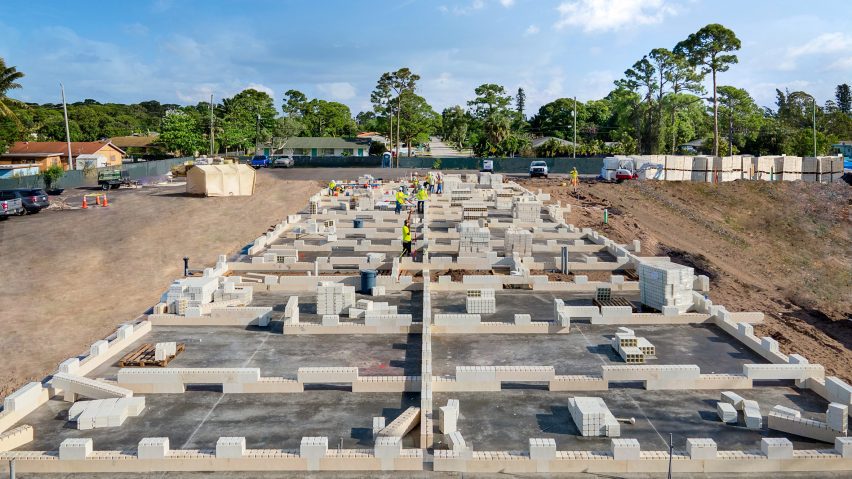
"Real-life Lego kit" used to create Palm Springs apartment block
Florida-based manufacturer Renco has used stackable, Lego-like blocks made of repurposed materials to build an apartment block in Palm Springs designed by architecture studio Arquitectonica.
Made of a composite of glass fibres, resin and stone, the were designed to be stronger, less energy-intensive and more affordable that traditional materials, according to Renco.
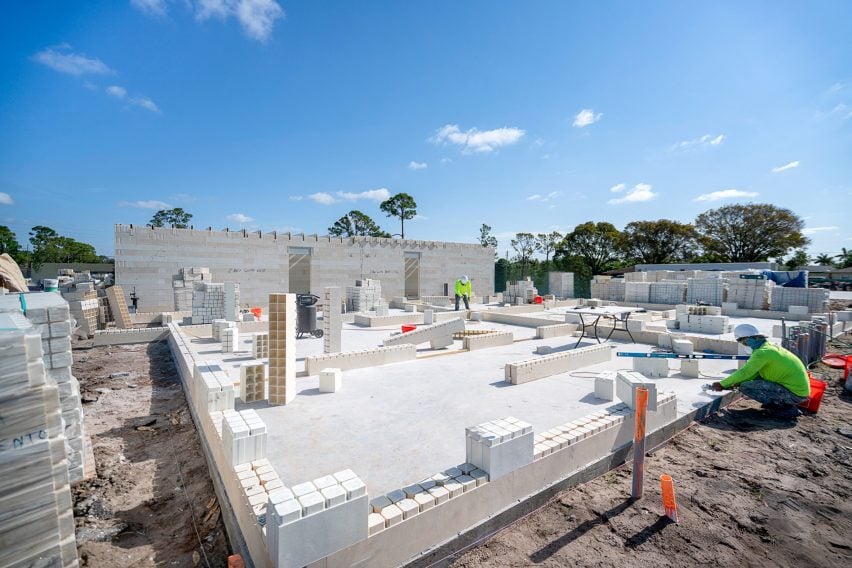
The blocks were first used in Turkey after earthquakes to rebuild infrastructure faster and more affordably after natural disasters.
"Renco's structural building system is a new way to build that is 23 times stronger than concrete, less expensive and finished in a fraction of the time," said the company.
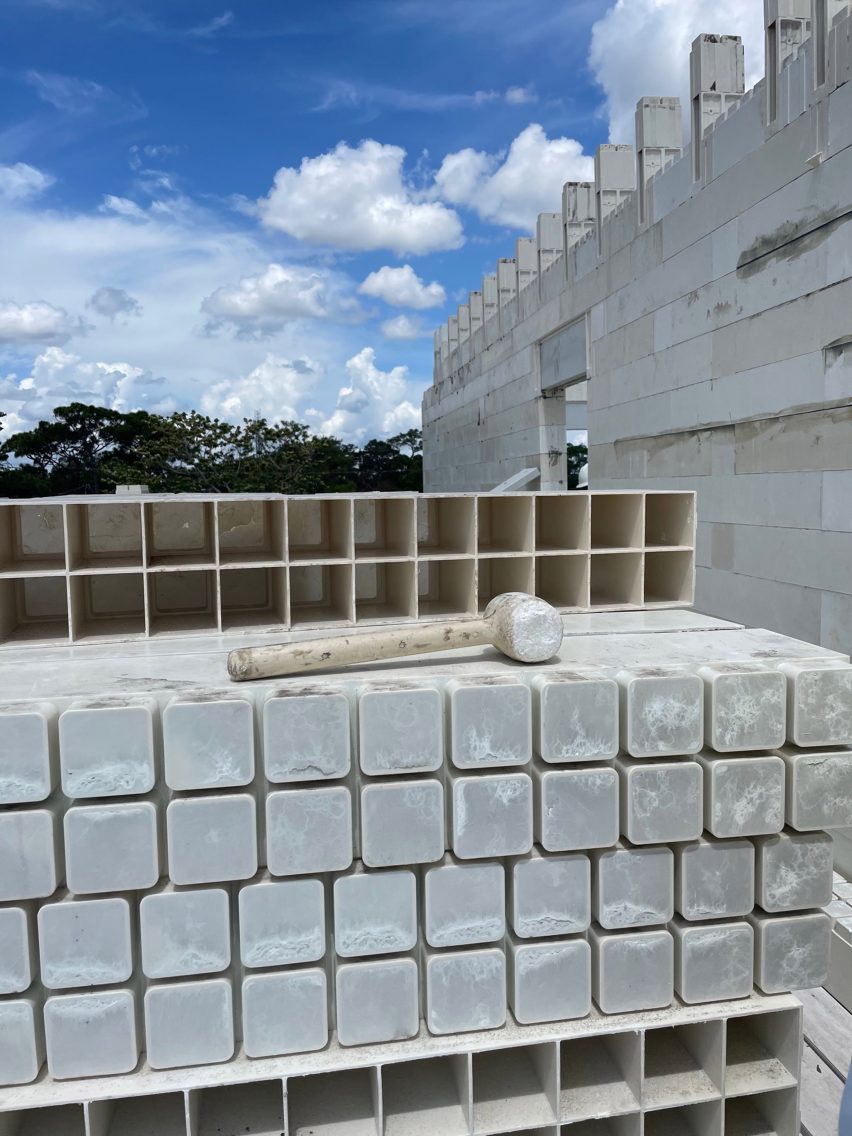
"Think of it like a real-life Lego kit – moulded blocks that interlock and create entire structures," it continued.
"By simplifying construction into a Lego-like kit, Renco buildings can be assembled much faster, reducing time on the job and energy consumption."
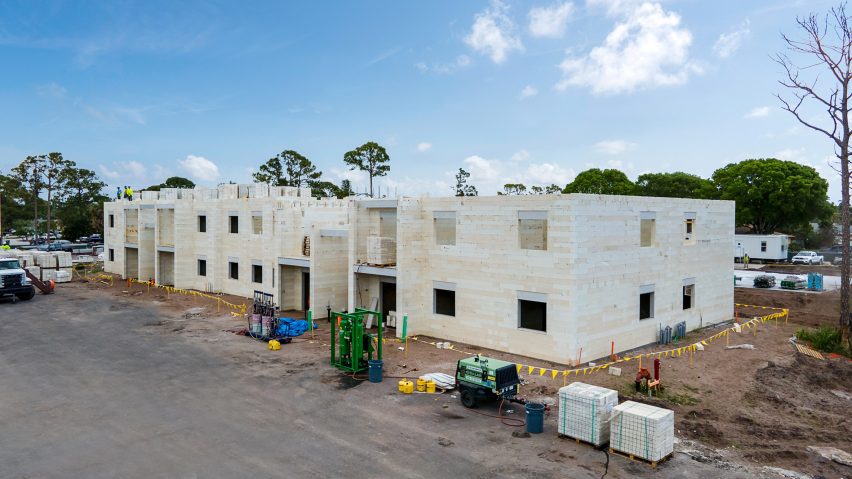
An individual block is made using a composite of glass fibres, resin and stone with 40 per cent of materials repurposed from sources like the "massive boat building industry" that would otherwise go to waste.
Each moulded block is rectangular and topped with a series of knobs, which interlock and stack in the same way as a Lego block.
The typical block measures 8 by 8 by 16 inches (20 by 20 by 40 centimetres) and weighs 20 per cent less than a traditional concrete block, according to the team.
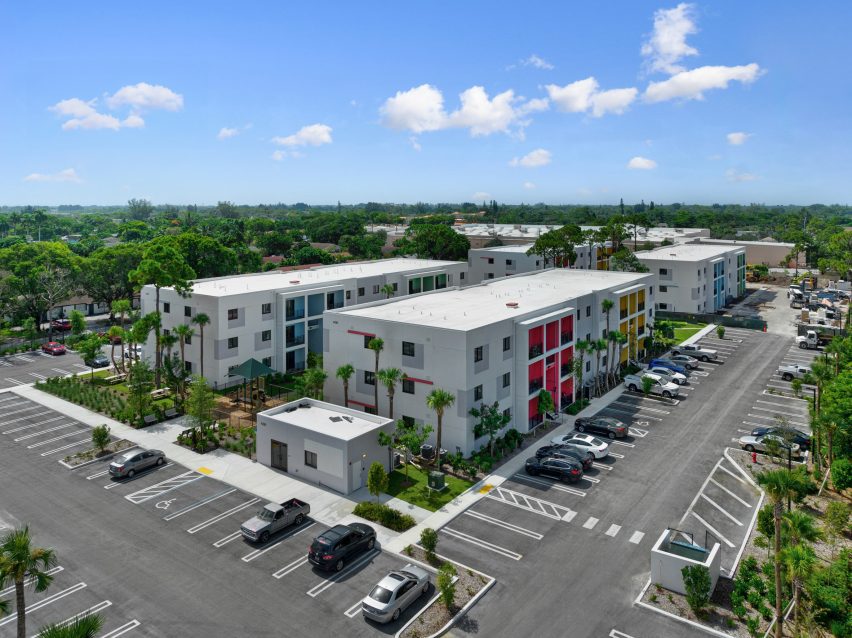
A two-part methyl methacrylate adhesive was used to bind the blocks to one another.
"To build with Renco, all that is required is a fork truck to lift up the materials, a glue gun powered by a small generator and a mallet," said the team.
"Crews don't need heavy equipment or power tools – no exterior scaffolding, no big cranes, no cutting, burning, welding or grinding."
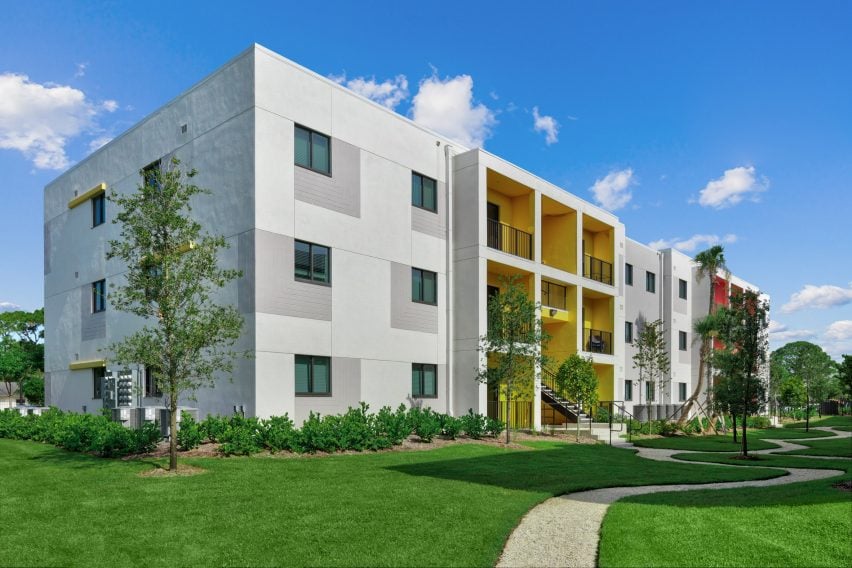
The block's design also reduces construction time.
"It only takes about two hours to train a person to build with Renco, so construction projects are not delayed due to traditional labour shortages," said the team.
"For example, the first Renco USA housing complex in Palm Springs, Florida was finished in record time. With 11 unskilled workers, it took about eight weeks to assemble each of the four identical three-story buildings."
According to the team, the construction method can triple a building's lifespan and is rated to be hurricane and earthquake-resistant.
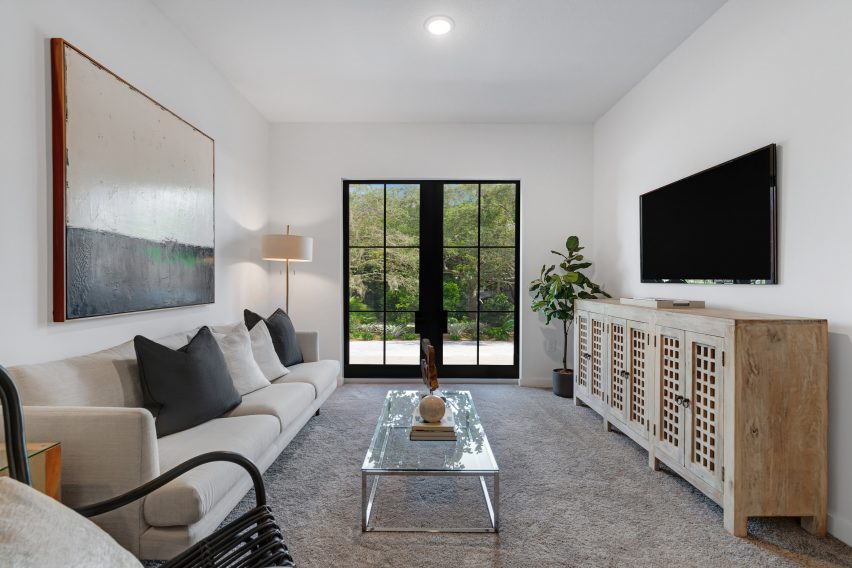
Additionally, the company claims that the blocks are fire, water, mould, termite and pest-resistant.
"It simply won't rust or rot and nothing will consume it," said the team.
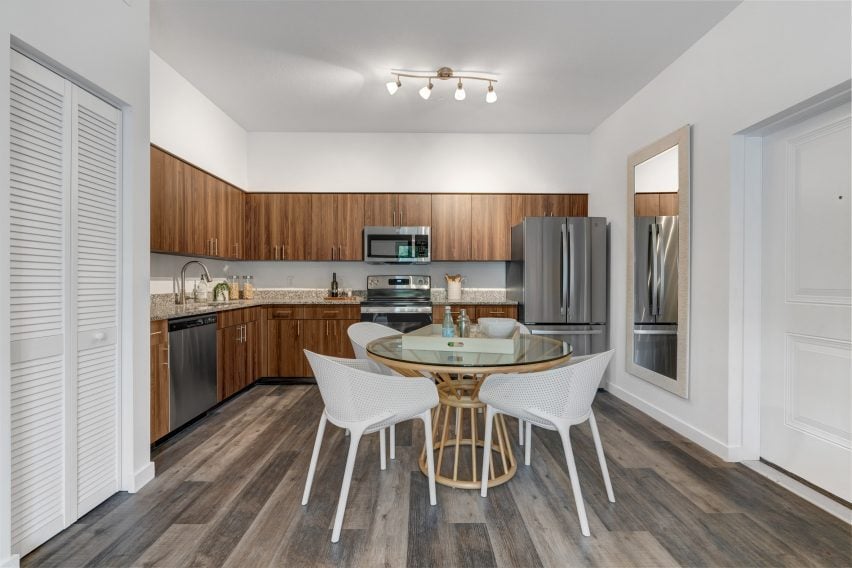
The construction blocks have passed over "400 rigorous safety tests" to be used in the US.
The apartment complex by Arquitectonica, which is the first US project to employ the blocks, contains 96 apartments distributed between four identical, rectangular buildings which are marked by colourful entrances.
Recently, Chinese materials company Yi Design created a porous brick using 90 per cent recycled ceramic waste that could be used to mitigate flooding.
The photography is courtesy of Renco.